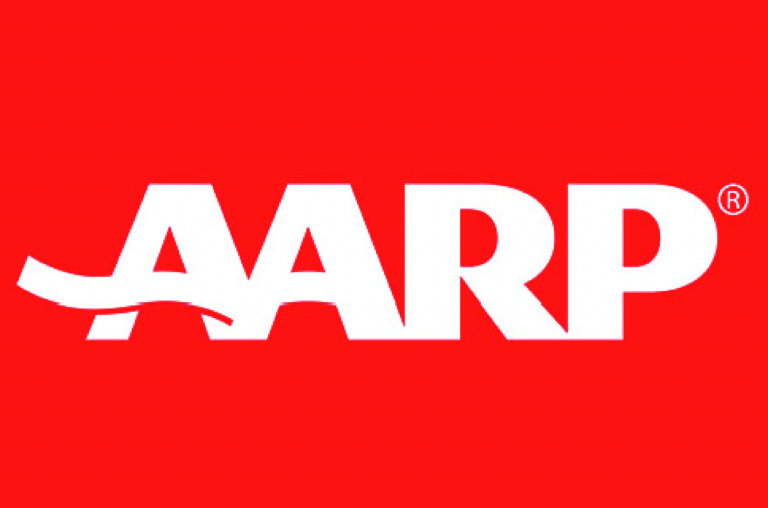June 15, 2022
Permission to republish original opeds and cartoons granted.
AARP is an organization that purports to represent seniors 50 years of age and older, but who do they really represent?
By Rick Manning
It might surprise people to learn that AARP members sign up to be marketed to by one of the largest insurance companies in America – United Healthcare. And that AARP earned more than $1 billion dollars from royalties from this health insurer and other partners according to their 2020 tax reporting documents. Of these royalties, it is estimated that hundreds of millions came from their partnership with United Healthcare.
So the question any AARP member might ask is whose side is this multi-billion dollar “non-profit” on?
This is particularly true when one finds out that AARP is busily carrying water for big insurance concerns like United Healthcare when it comes to the issue of federal government prescription drug price setting.
Traditionally, seniors have been amongst the largest beneficiaries of advances in medical care whether it be better medical devices that solve mobility issues, or more efficient medicines and cures which extend quality of life. And no one can miss the obvious fact that the long private research effort dedicated to conquering Alzheimer’s Disease is one of the most important senior health issues facing America.
Yet, AARP’s fronting for their health insurer benefactor bottom lines runs directly counter to the health interests of their members.
Let me be clear. Medicare dictating the prices that will be paid for medicines seniors can get will result in seniors not getting the medicines that their doctors have decided work best for them. It will also significantly limit investment in developing new medicines that would be covered under Medicare should the federal government gain the power to effectively decide the price of medicines.
On the medicine availability issue, we already see this regularly at the state government level where drug formularies determine which medicines people on Medicaid may receive. It doesn’t matter if the ‘approved’ medicine works well for that individual patient, it only matters that it costs the government less to provide. And in many cases, these formularies are changed regularly to reflect annual or semi-annual negotiations, leaving patients to switch medicines due to the not-so-tender mercies of government bean counters instead of their doctors who know best what works for them.
If anyone thinks, after the last two years of the COVID debacle that one-sized fits all medical systems make sense, they haven’t been paying attention. Yet that is exactly what Congress would open the door to happening should they allow Medicare to negotiate prices with the obvious end result of pushing seniors into the least expensive treatment alternatives regardless of individual patient’s interests.
But an even more devastating outcome of this Medicare pricing scheme will be the drying up of research money for medicines intended to expand quality of life for seniors. New medicines cost more money, and all the FDA approvals in the world won’t mean a thing if the price bureaucrats won’t allow new treatments to be sold for a profit.
There are those who want people to believe that companies would spend billions of dollars in research to bring new innovative medicines for seniors to market under a Medicare price control regime. Of course, they are the same people who argued that our nation could increase our national debt by trillions without any fear of inflation. They are wrong on both accounts, but fortunately, legislation has not yet passed the Senate to impose deadly Medicare drug price controls under the guise of negotiations.
Which brings us back to AARP, and their willing push for a Medicare pricing scheme that provides pricing certainty to their big insurance partners, while doing violence to their members hope for the development of future cures and the ability to readily receive the medicines their doctor deems in their best health interest.
An article from earlier this month by Kaiser Health Network quotes Joshua Gordon, the director of health policy for the Committee for a Responsible Federal Budget as stating about AARP’s position on drug price controls, “It’s hard to know whether they’re advocating for their business interests or for the seniors that they are supposed to represent.”
Maybe it is hard for Mr. Gordon to know, but the answer should seem pretty obvious to the rest of us.
Rick Manning is the President of Americans for Limited Government.
Video: The danger of red flag gun laws
To view online: https://www.youtube.com/watch?v=KjaTRGthDjw


Terry Bowman: Ford in bed with UAW over card check campaign
By Terry Bowman
Ford recently announced an $11 billion investment in electric vehicle and battery plants in Kentucky and Tennessee – a win for southern workers looking to fill the 11,000 new jobs needed to support the manufacturing sites. But unlike General Motors, which appears to be taking steps to protect their new workers, the news was clouded by Ford’s neutrality agreement with the United Auto Workers (UAW), a move that grants the UAW a shockingly unfair advantage at unionizing new workers.
Despite its name, a neutrality agreement does not mean that Ford passively sits indifferently on the sidelines during an organization campaign by the UAW. Far from it. Ford becomes an active ally with the union and can allow union organizers access to its new and non-union facilities, giving the union the ability to disperse literature in-plant, and to give their sales pitch to potential members.
In addition, Ford agreed to hand over workers’ personal information to the union. Organizers can then contact workers at their homes in addition to the workplace – an unsettling experience for many that makes workers wonder whether their job is contingent upon support for unionization.
As an almost 26-year Ford/UAW represented worker, I can personally attest to the coercion that can come from union officials. The average autoworker would rather keep their head down than push back against these aggressive tactics and risk the income that keeps dinner on the table for the family.
Perhaps most troubling is that Ford has agreed to allow the union to hold a card check campaign, bypassing a normal, secret ballot election.
There are many problems with a card check campaign, which is a menacing way to conduct any election. A union organizer will approach a worker and ask them to sign a card, permanently tying that worker to a decision on unionization. In the past, union check cards have even been deliberately designed to look like the worker is only signing a request to hold an election, but instead are actual authorization cards for representation.
Card check also means that workers are being denied the right to vote in a secret ballot election. Secret ballots are the great equalizer; the final power-play workers have to counter a union’s – or company’s – intimidating tactics during an organizing campaign. The secret ballot gives workers peace of mind that their decision will always and forever remain private and cannot be used against them.
No one, not the UAW nor Ford, should have the ability to deny workers the right to a secret ballot election. Voting rights for workers are not a whim that can be secretly negotiated away between a union and company. All workers must be protected from a company and a union that are willing to strip away their voting rights due to an obscure negotiation on page 482 of the 2019 collective bargaining agreement. Voting rights for workers are essential to a fair and balanced workplace environment. Card check campaigns should be illegal as a violation of worker rights.
The UAW with its years-long federal corruption trial is desperate for new members and revenue, and eagerly awaits a card check campaign. As we know in Michigan, once the UAW becomes embedded into a facility, they will never allow a recertification vote or any attempt by workers to decertify. Once voted in, workers are stuck with the UAW for generations to come. It will simply be forced upon them as a condition of employment.
Over the last couple of decades, autoworkers in the South – when granted their right to a secret ballot – have demonstrated time after time that they are not interested in what the UAW has to offer. Those 11,000 future autoworkers in Kentucky and Tennessee deserve those same rights, freedoms, and protections.
To view online: https://www.thecentersquare.com/opinion/op-ed-ford-in-bed-with-uaw-over-card-check-campaign/article_205e376e-eb1b-11ec-96ba-5f4251c827c3.html



